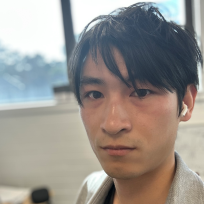Meet the Researcher: Guangyong FU
International PhD student, Guangyong FU is embracing the opportunity to help solve one of the universe’s great mysteries .
PhD candidate Guangyong FU had an unusual introduction to Australia, undertaking two weeks’ hotel quarantine when he arrived in Melbourne from China.
Despite the timing of his arrival during the COVID-19 pandemic, the opportunity to study abroad was part of a long-held dream to help solve one of the universe’s great mysteries.
Guangyong attributes his interest in mathematics to the support and encouragement of his grandfather when he was a child, growing up in China. The son of farmers, his grandfather was a school maths teacher who valued education for his grandson.
“He spent a lot of time helping me with my homework, even though he was tired after work. His love and expectations drove me to work very hard in my education.”
This support blossomed into a curiosity about the unknown aspects of the universe, including dark matter.
“My education in secondary school made me realise that I could understand how the world operates through the laws of physics. At university, I learnt how limited our understanding of the world is: we only understand 5 percent of the universe! I was curious and wanted to understand what the invisible part was.”
Guangyong became the first person in his family to attend university and study abroad.
He chose to travel to Melbourne after hearing about the standard of education available in Australia, and its stunning landscapes. He had also heard that Melbourne had been named one of the world’s most livable cities.
Guangyong is completing his PhD in particle physics and is working on dark matter direct detection and the SABRE South experiment, which will be located in the Stawell Underground Physics Laboratory (SUPL), the first underground laboratory in the Southern Hemisphere.
He considers himself fortunate to have the opportunity to be part of world-leading research into the nature of dark matter.
In mid-2023, Guangyong was among a group of students and researchers who completed an induction and training program in Stawell that will enable him to travel underground into SUPL to contribute to the SABRE experiment.
The completion of the construction of SUPL, and his visit to the laboratory, have been highlights of his experience in Australia so far.
He has also appreciated the support he has received from staff and fellow students.
“I’m lucky to be able to study here. People are always ready to help if I have got any questions or problems. It’s important to collaborate with people.”
However, the experience of being an international student has not been without its challenges.
“I miss my family and friends a lot, it has been a long time since I last visited them. I miss the scent of meals with my parents and I’m longing to be by their site watching tv and chatting.”
The experience of applying for a visa was also lengthy, and Guangyong says could be improved. He also believes mentorship from experienced international researchers could help guide and support newcomers.
Ultimately, he is pleased to have the opportunity to pursue his interest in physics in Australia.
“I love physics because, through fundamental laws of physics, I can understand the complex and beautiful natural world. We can learn about the history of our universe and make predictions for the future. The discoveries in physics have already led to tremendous practical applications in our lives,” he said.
“I feel very excited about being involved in dark matter research because the discovery of the nature of dark matter can revolutionize our understanding of the universe.”

